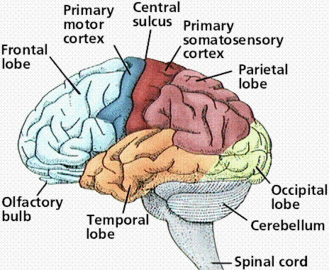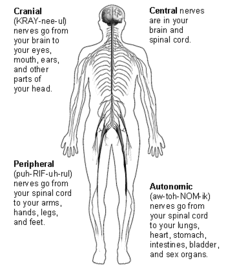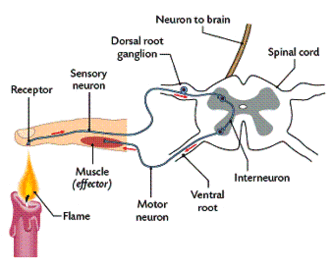Introduction

The Nervous system is a complex, organ system with many divisions that help in the operation of the human body. It is considered as a communication network, essential for the working of the body. Moreover, with the help of the brain, this system also controls the actions and reactions of the people. Therefore, it is very important to understand the function of the nervous system and to explore the reason as to why it’s crucial for this system to work properly without any glitches.
History

This system is usually divided into two parts: the central and the peripheral nervous system. While the Central Nervous system includes the brain and the spinal cord, the peripheral component contains special, communication cells called neurons and nerves that work as wires in this network. It serves as a way of transferring messages to the brain from the rest of the body, and from the brain to the rest of the body.
Features

The role of the nervous system is concerned with the sensation, collection and reaction to the changes inside or outside a body. The sensory receptors inside the body detect changes like sound, light and temperature, whether it’s inside or outside the body. After these changes are detected, they are converted into electrical signals and these electrical signals are, then, all collected to tap into the memory or thoughts of the person. This creates feelings like pain, happiness, sadness, etc. Next, the nervous system responds to these feelings by communicating, through signals, with the muscles and glands in the body. This whole process represents the role of the nervous system and its importance for the human body. Chemical means may also be used to communicate through the nervous system. This system is a way to ensure that the body maintains a safe internal environment and stays within certain beneficial limits. It, indirectly, also helps in psychologically/mentally adapting to the society and adopting appropriate measures of living. Also, it warns the person of any actions that may prove to be harmful to him/her, for example, burning him/herself and informs them of all the actions that are necessary for his/her betterment. The blood flow of the body is also sometimes controlled by the warning signals sent by the nervous system and may lead to an alteration in blood pressure or blood flow in the body. Moreover, it also plays a hand in controlling the heart beat, automatically, by alerting the heartbeat of any unfavorable changes through electrical signals.
Tips and comments
Thus, it is evident that the nervous system holds a high status amongst the different parts of a body. It is indirectly related to and almost always effects and induces reaction from different parts of the body. Without it, the human body would be deprived of many feelings that serve as aid in everyday living. This system prevents humans from hurting themselves and ensures that a balance is maintained between the environment inside the body and outside the body. Simply putting it, this system is essential for a healthy living.